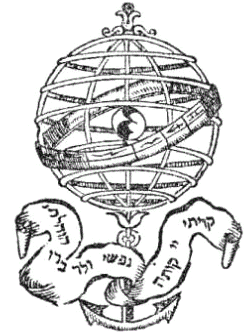Library at the Katz Center for Advanced Judaic Studies & Penn Libraries Judaica - Collections
Judaica Collections of the Penn Libraries
The Judaica collections at the Penn Libraries, as a whole, constitute one of the world's largest and richest resources on the history and culture of Jews. The collections are dispersed, mainly, among five library locations: the Van Pelt-Dietrich Library Center, the Library at the Herbert D. Katz Center for Advanced Judaic Studies, the Fisher Fine Arts Library, the University Museum, and the Biddle Law Library. The combined holdings currently total between 350,000-400,000 volumes in 24 languages and dialects and in a range of formats from manuscripts to electronic resources. Quantitatively, this amounts to one of the largest Judaica collections in the world. Qualitatively, these holdings cover almost every period and area of Jewish life from the Biblical era to contemporary America and support both undergraduate education and advanced research.
Collections at the Library at the Herbert D. Katz Center for Advanced Judaic Studies
The Herbert D. Katz Center for Advanced Judaic Studies at the University of Pennsylvania is the successor of Dropsie College for Hebrew and Cognate Learning. Like its predecessor, the Center's mission is to advance the study of Judaism in a non-sectarian and non-theological context.
Dropsie College was the first state-accredited academic institution in the world to confer Ph.D. degrees in Judaic Studies. In the course of its nearly 80 years of existence, from 1907 through 1986, the College awarded more than 200 doctoral degrees, and became a major training center for the country's Judaic scholars. Throughout those years it was the publisher of the Jewish Quarterly Review, the oldest continuously published English-language journal of Jewish Studies and one of the most respected scholarly journals in its field.
In 1986 Dropsie College became the Annenberg Research Institute, a center for post-doctoral research in the comparative history and traditions of Judaism, Christianity and Islam, granting residency fellowships to distinguished scholars from all over the world. In 1993 the Institute merged with the School of Arts and Sciences of the University of Pennsylvania to form its Center for Judaic Studies. The Center, which was renamed the Center for Advanced Judaic Studies in 1998, became the Herbert D. Katz Center for Advanced Judaic Studies in 2008 .
The Library at the Katz Center holds approximately 200,000 volumes, including 32 (17 Hebrew and 15 Latin) incunabula and over 8,000 rare printed works, mainly in Hebrew, English, German, French, Yiddish, Arabic, Latin, and Ladino. The rare Hebrew editions offer specimens from a variety of Hebrew printing houses around the world; particularly strong are holdings of early modern rare books printed on the Italian peninsula, including nearly 20% of all Venetian Hebrew imprints. The CAJS Library special collections of non-print materials include 453 codices written in 11 different alphabets as well as in 24 different languages and dialects as varied as Armenian, Hebrew, Judeo-Arabic, Syriac, Yiddish and Telugu, a collection of ancient artifacts dating from ca. 2,500 BCE and nearly 600 medieval manuscript fragments from the Cairo Genizah.
The Library's archive holds the institutional records of Dropsie College; those of its faculty, students, and library; the professional papers of some of its faculty; as well as the personal papers of over 50 Jewish American scholars and community leaders who lived in Philadelphia in the late 19th and early 20th centuries. Among them are the papers of Isaac Leeser, Sabato Morais, Mayer Sulzberger, Moses Aaron Dropsie, and Cyrus Adler. There are two significant Yiddish archival collections, the papers of B.Z. Goldberg and Elias Schulman, as well as a number of valuable multi-media resources, including the Harvard Sheldon Jewish American Research Library and the recently acquired Lenkin Family Collection of Photography, which contains over 4,000 original 19th-century photographs of the Holy Land. The most important recent acquisition was the gift in 2012 of the Arnold and Deanne Kaplan Collection of Early American Judaica, consisting of over 11,000 items. It is the foremost collection of its kind in the world, documenting Jewish life around the Atlantic world from the 16th-to-19th centuries.

